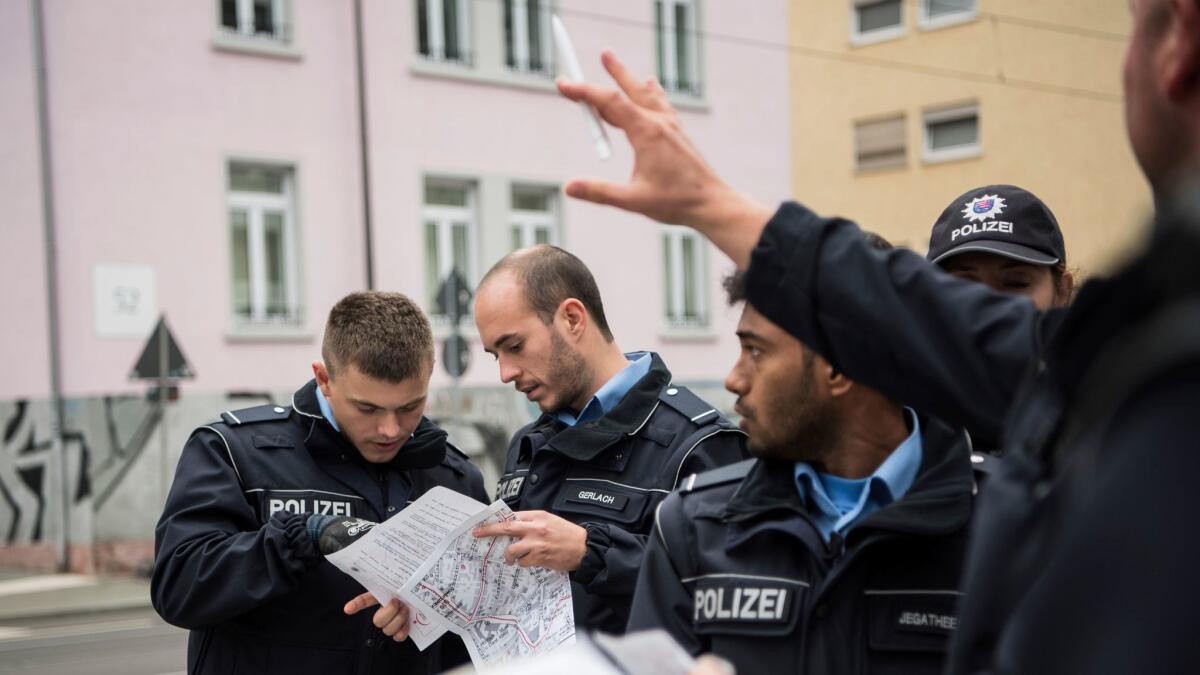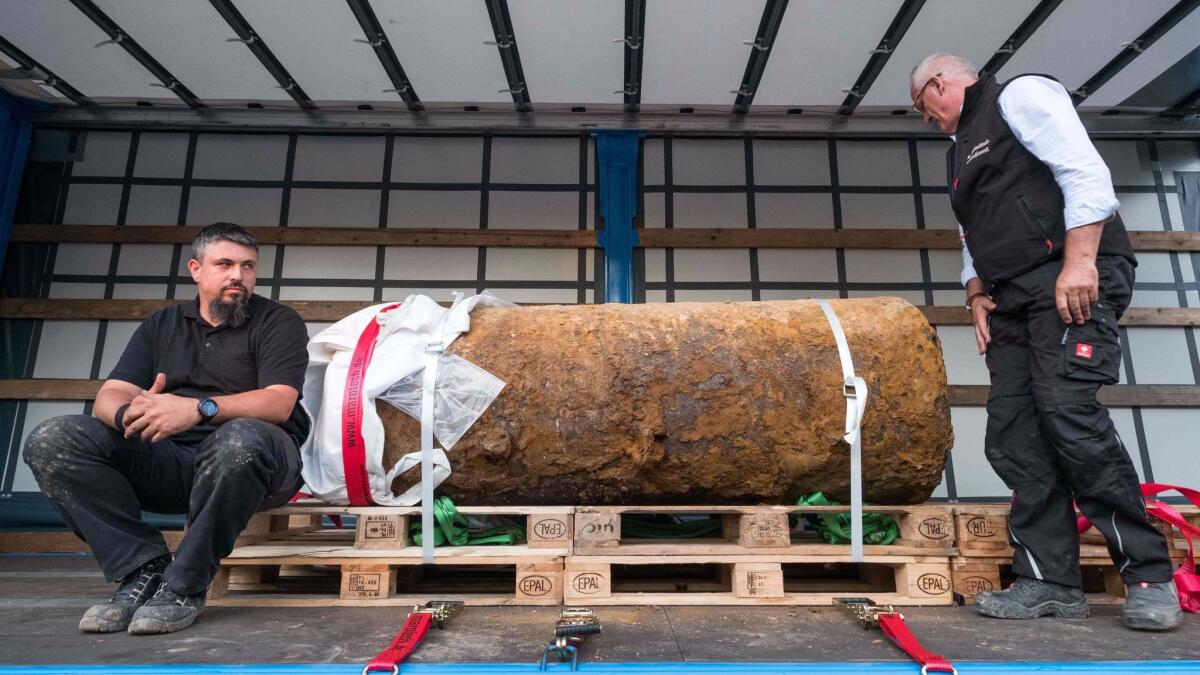Germany defuses gigantic World War II bomb after evacuating 65,000 people

- Share via
Reporting from BERLIN — German explosives experts defused a 4,000-pound World War II-era bomb in Frankfurt on Sunday after evacuating 65,000 people from their homes, hospitals and jobs for the better part of the day.
Britain’s Royal Air Force dropped the bomb — known at the time as a “blockbuster” because of its ability to destroy entire streets — near the end of a five-year Allied bombardment in which 1.5 million tons of explosives rained down on Nazi Germany.
Authorities estimate that about 15% of those bombs failed to explode, burying themselves up to 20 feet under ground. About 2,000 tons of live munitions are unearthed and disposed of every year in Germany, a ghoulish reminder of the nation’s violent past.
The gigantic Frankfurt bomb was discovered during excavation work Tuesday in the German financial capital’s upscale Westend district.
The evacuation — Germany’s largest since the war — began at 8 a.m. Sunday.
More than 1,000 emergency services workers helped clear the area within a one-mile radius of the bomb site — a zone that includes two hospitals and 10 retirement homes; the Bundesbank, Germany’s central bank where about $70 billion in gold is stored; and the Hessische Rundfunk radio and TV headquarters.
Police combed the area on foot and also relied on helicopters equipped with infrared cameras to detect any stragglers.

Authorities had to delay the start of the bomb disposal work by 2 ½ hours because about a dozen people were refusing to leave their apartments. Police said they had to use a fire department ladder truck to access one apartment and forcibly remove its occupant.
“It was ignorance and stupidity,” said the head of the Frankfurt fire department, Reinhard Ries, adding that he hoped charges would be filed. “The whole operation was held up because of a dozen people.”
Other residents, who had been hiding in their apartments, were frightened by the ghostly silence in their normally bustling inner-city neighborhood and called police to ask for help getting out.
“It’s really annoying, because the whole city was affected by this and some people put their own selfishness above the interests of the community,” said the police chief, Gerhard Bereswill. “It’s a travesty, in my mind.”
Police bomb disposal experts finally got to work at around 2:30 p.m. They first removed three fuses and later detached three detonators before declaring the job done at 6:20 p.m.
“I’m going to have a glass of wine tonight,” Dieter Schwetzler, one of the two men who defused the bomb, told German TV.

It was not the first time that large numbers of people have had to clear out of an area while World War II-era bombs are defused. About 54,000 people were evacuated for one such operation in Augsburg late last year, and 50,000 were evacuated in Hanover in May.
Even though Germans are used to hearing about the discovery of smaller bombs in the 500- to 1,000-pound range, Sunday’s operation drew intense media coverage because of the size of the bomb and the evacuation.
There are real dangers associated with such operations. Police were unable to defuse a 500-pound bomb found in Munich in 2012. Their controlled detonation produced a fireball that lighted up the nighttime sky, causing millions of dollars worth of damage to 17 nearby buildings.
In 2010, three police officers were killed while preparing to defuse a 1,000-pound bomb in Goettingen.
The bomb found in Frankfurt was designed to blast the roofs off apartment blocks within about a half-mile radius, opening them up for firebombing raids that would cause even more death and destruction.
Kirschbaum is a special correspondent.
More to Read
Sign up for Essential California
The most important California stories and recommendations in your inbox every morning.
You may occasionally receive promotional content from the Los Angeles Times.













